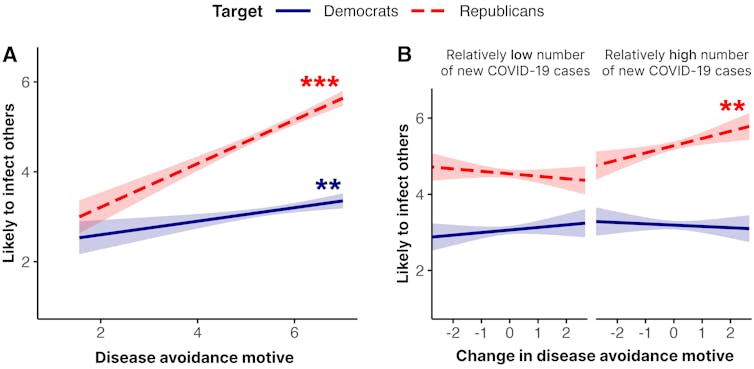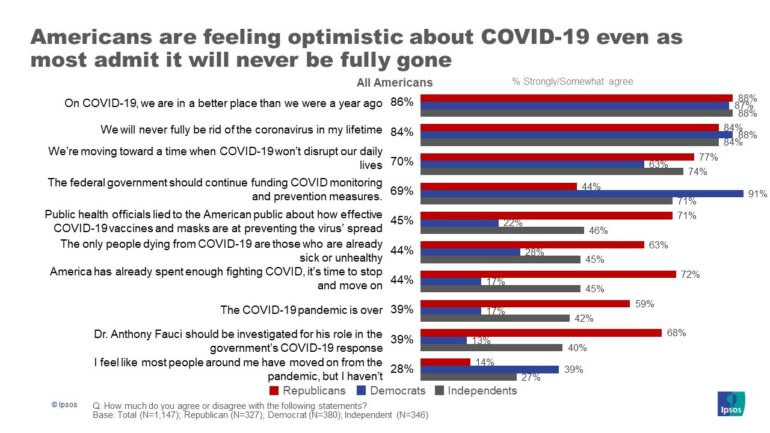Americans who felt most vulnerable during the early days of the COVID-19 pandemic perceived Republicans as infection risks, leading to greater disgust and avoidance of them – regardless of their own political party. Even Republicans who felt vulnerable became more wary of other Republicans. That’s one finding from research we recently published in the journal American Psychologist, and it has important implications for understanding a fundamental feature of human disease psychology.
Many Republican politicians and supporters, as compared to their Democratic counterparts, downplayed the threat of COVID-19 to public and personal health and resisted masking and social distancing. These attitudes and actions appear to have turned political affiliation into a new cue of possible infection risk.
This is an example of what scientists call the behavioral immune system at work.
Why it matters
Most people are familiar with the physiological immune system your body uses to fight disease by activating defenses, like fever and coughs, after you get infected.
In contrast, your behavioral immune system tries to help you avoid getting infected in the first place. It scans for observable cues correlated with infectious disease – such as other people’s coughs and open sores. Then it marshals feelings, such as disgust, and behaviors, such as distancing, that help you avoid people who might be contagious. These reactions likely occur without conscious awareness or deliberate intention.
Scientists have learned a great deal about this process, but some important questions remain. As psychology researchers, we were interested in how the behavioral immune system could adjust quickly to new cues about infectiousness and changing risks.
How we do our work
Starting in April 2020, shortly after the initial COVID-19 lockdowns started, our team tracked a nationally representative sample of over 1,100 Americans for around eight months. This was a time of great unpredictability, with no vaccine available.
Every eight weeks, we asked participants through an online survey about their motivation to avoid disease and their attitudes toward various groups, including Republicans and Democrats. As COVID-19 infection rates fluctuated over the eight months of our study, we could watch changes in the same person’s motivation over time and their evolving views of political partisans.

On the left, people who were more motivated to avoid disease viewed Republicans as especially likely to infect others. On the right, people whose motivation to avoid disease increased during COVID-19 surges viewed Republicans as especially likely to infect others.
Ko et al., 2024
We found that Americans who were highly motivated to avoid disease and whose motivation increased as infection rates rose perceived Republicans as posing greater infection risks than Democrats. They also reported more feelings of disgust toward and avoidance of…



